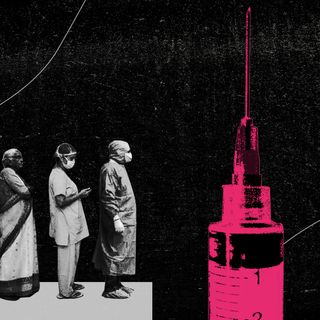The Tripura state government has approved a proposal to provide free sanitary napkins to girls from class six to class 12. The scheme intends to cover more than 1.6 lakh girls and will have a budget of around 3.6 crores over three years.
The purpose of this particular scheme, according to Tripura Education Minister Ratanlal Nath, is both to encourage menstrual hygiene and to make sure girls do not skip school due to their period. However, this isn’t the first Indian state to consider and enact such a measure. States like Tamil Nadu, Karnataka, Kerala, Bihar, and others have carried out similar programs with large budgets. The Indian central government has also put forth policies in which more than 5 crore women received menstrual pads at a cost of Rs. 1 each. There have also been (sparse) profit incentives for Accredited Social Health Activists (ASHA) to sell heavily state-subsidized sanitary napkins under the Menstrual Hygiene Scheme.
Yet, few of these policies have been successful. An evaluation of the Menstrual Hygiene Scheme showed that an irregular supply of sanitary napkins led to only 30% of girls actually using the pads even though most were aware of the option. Menstrual hygiene product policies have also been used as either an incentive for women to vote or as an election campaign gimmick, defeating the point of why women need free and subsidized menstrual health products. Plus, the pandemic wrought havoc on all menstrual health schemes — affecting menstrual care commercial supply chains and outreach services to such an extent that a significant number of women had to return to cloth pads during their period. The Karnataka government even re-allocated its sanitary napkin fund to Covid19 relief efforts.
Related on The Swaddle:
23% of India’s Girls Drop Out of School at Puberty; Period Bullying Is One Reason Why
Apart from implementation, many researchers have critiqued aspects of such policies that remain exclusionary. The most glaring exclusion remains that menstrual hygiene schemes are completely targeted towards cisgender women and girls, completely ignoring the urgent needs of individuals with other gender identities who menstruate. Researchers also critique lawmakers’ focus on simply handing out sanitary napkins to adolescent individuals who may not know how to use or dispose of them safely. Plus, the government continues to promote sanitary napkins only for menstrual health, remaining silent about the variety of other menstrual products that could both be an inexpensive and sustainable means to ensure menstrual hygiene. One potential reason for the same could be the large-scale stigma associated with menstrual products that must be inserted into an individual’s vagina.
Overall, though India’s distribution policies around menstrual health are commendable attempts, lack of inclusion and irregular implementation have kept them from achieving the degree of success promised. While the Tripura government’s initiative is positive, there’s no certain way to know if it will benefit the schoolchildren it targets.




